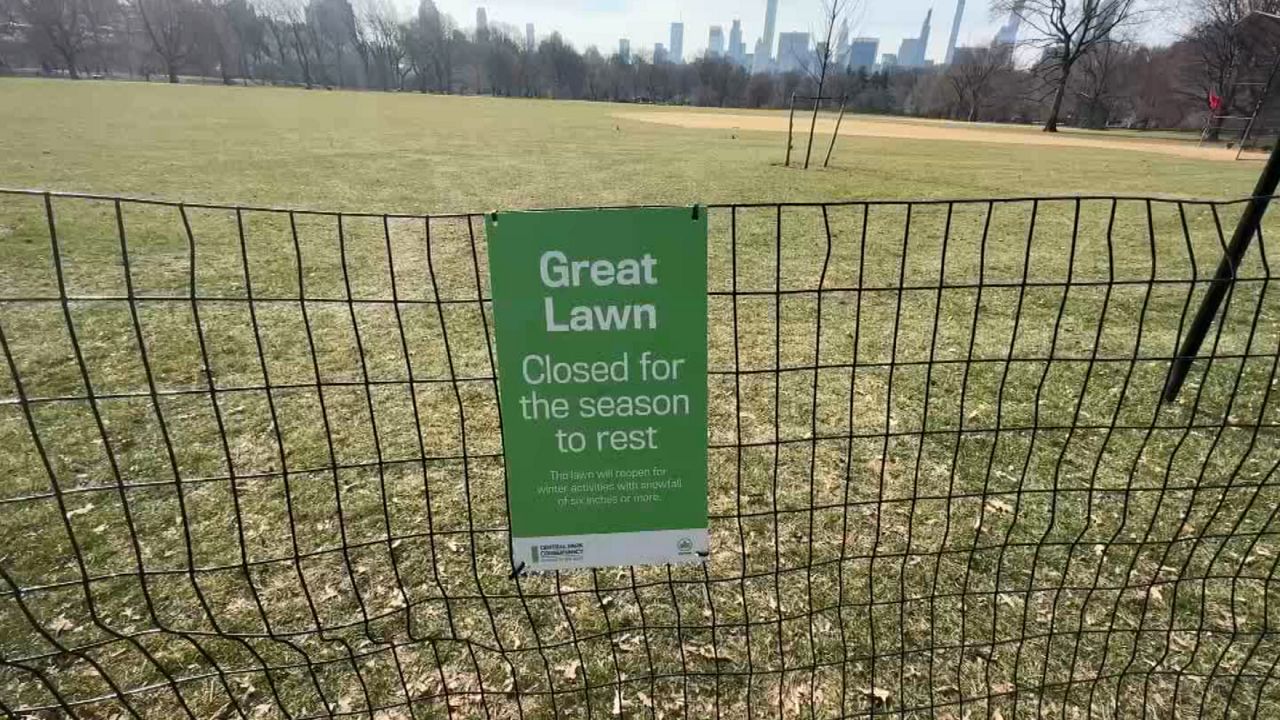On a recent sunny spring morning, Peter Haupt and Clara Pregitzer were looking for a tree on the northern tip of Central Park.
Working on a project to monitor temperatures in that area, they wanted to install a sensor high up on a trunk.
“This is the sensor itself and then this is the data logger,” said Pregitzer, deputy director of Conservation Science at the Natural Areas Conservancy, while showing the equipment. “This is bluetooth enabled, so we can walk up to the sensor and download the data.”
In just a few minutes, Haupt climbed up one of the trees and finished the job.
“We chose that tree because of the easier access and the ability to install the sensor fairly easily,” said Haupt, tree care manager at the Central Park Conservancy.
This research project is the first initiative put forward by the newly created Central Park Climate Lab.
“We don’t have a lot of hard data to be able to say what the impacts of climate change are on the trees in Central Park,” Haupt said.
Researchers are looking for data and tools that would help parks confront this new reality.
The Central Park Climate Lab is a newly-created partnership between the Central Park Conservancy, the Yale School of the Environment and the Natural Areas Conservancy.
“We are really looking to partner and study the relationship between climate change and urban parks,” Pregitzer said.
Tracking these temperatures will also help researchers establish the cooling benefits of woodland areas in urban spaces.
“We know that cities, because of all the pavement and buildings, are on average two to six degrees warmer than rural places, and parks can be kind of the air conditioners in cities,” Pregitzer added.
This project will expand to other parks of the city. Researchers expect to gather temperature data for the next four years.
Currently, the number one weather-related cause of death in the country is extreme heat.








 Local Law 97 Rally PKG)